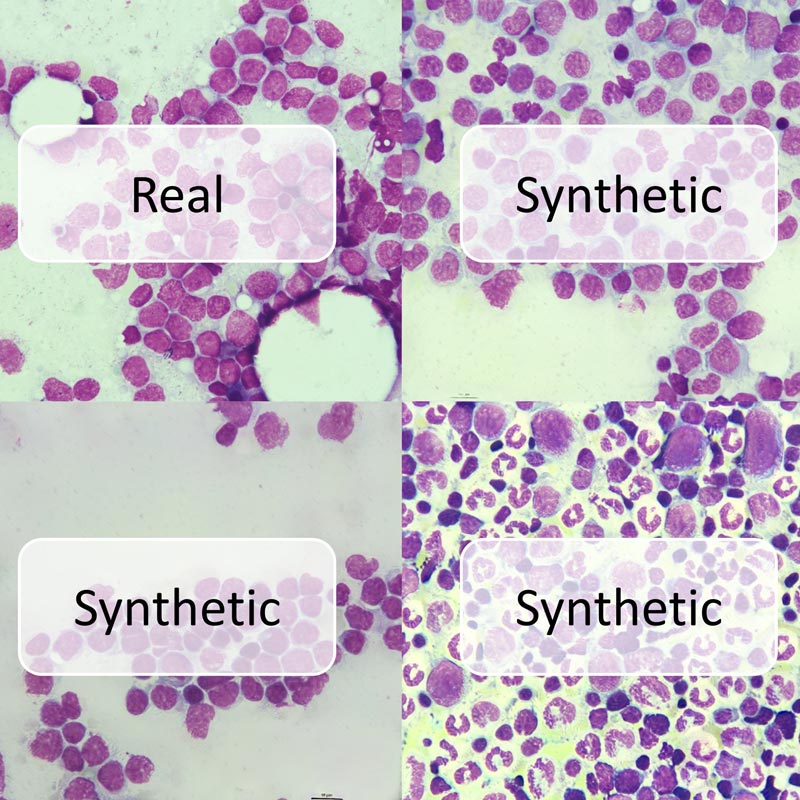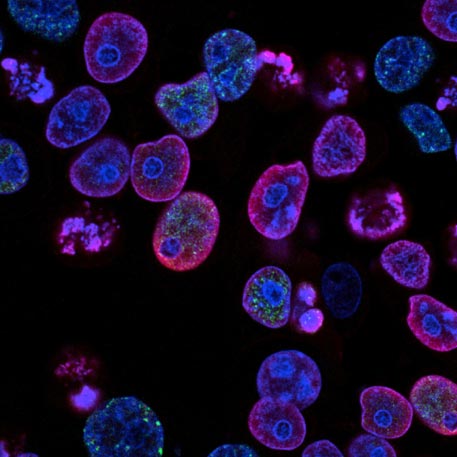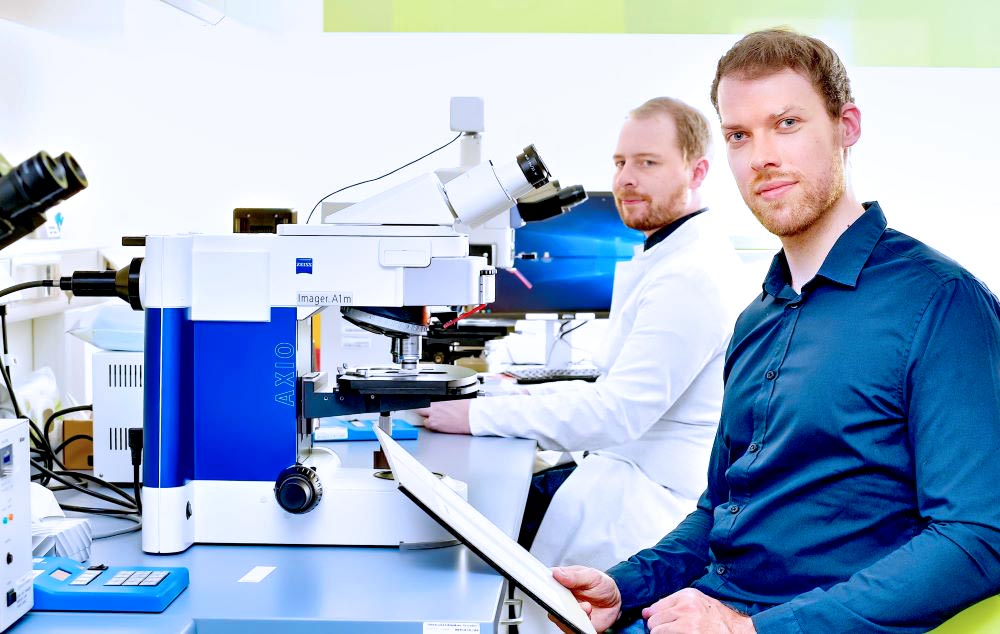Acute myeloid leukemia is the most common form of rapidly progressing blood cancer in Germany. If left untreated, it inevitably leads to death, and even with the most modern therapies, a cure is only possible for a minority of those affected. Precise diagnostics and a timely start of the best possible therapy are therefore extremely important. For the diagnosis of hematologic malignancies, the evaluation of bone marrow aspirates under the microscope by experienced professionals is essential.
Using deep learning, we have build a model that processes bone marrow image data and trained it on bone marrow smears from 1,251 AML patients and 236 healthy bone marrow donors. The final model achieved an accuracy of 97% in leukemia detection.
Further, our model is also able to predict the mutation status of Nucleophosmin1 – a crucial driver gene in leukemogenesis and marker of residual disease in response assessment – with high accuracy using bone marrow image data alone.
We are excited to share our results with you in Nature Leukemia under the link below.

Citation: Eckardt JN, Middeke JM, Riechert S, et al. Deep learning detects acute myeloid leukemia and predicts NPM1 mutation status from bone marrow smears. Leukemia. 2022;36(1):111-118. doi:10.1038/s41375-021-01408-w






